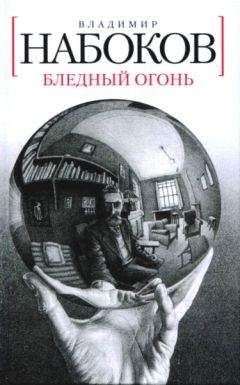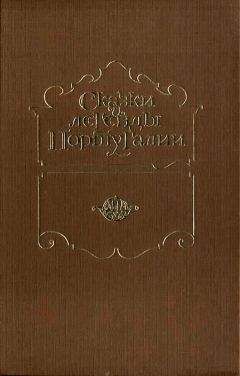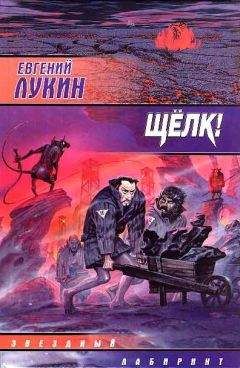Canto Two
There was a time in my demented youth
When somehow I suspected that the truth
About survival after death was known
170 To every human being: I alone
Knew nothing, and a great conspiracy
Of books and people hid the truth from me.
There was the day when I began to doubt
Man's sanity: How could he live without
Knowing for sure what dawn, what death, what doom
Awaited consciousness beyond the tomb?
And finally there was the sleepless night
When I decided to explore and fight
The foul, the inadmissible abyss,
180 Devoting all my twisted life to this
One task. Today I'm sixty-one. Waxwings
Are berry-pecking. A cicada sings.
The little scissors I am holding are
A dazzling synthesis of sun and star.
I stand before the window and I pare
My fingernails and vaguely am aware
Of certain flinching likenesses: the thumb,
Our grocer's son; the index, lean and glum
College astronomer Starover Blue;
190 The middle fellow, a tall priest I knew;
The feminine fourth finger, an old flirt;
And little pinky clinging to her skirt.
And I make mouths as I snip off the thin
Strips of what Aunt Maud used to call «scarf-skin.»
Maud Shade was eighty when a sudden hush
Fell on her life. We saw the angry flush
And torsion of paralysis assail
Her noble cheek. We moved her to Pinedale,
Famed for its sanitarium. There she'd sit
200 In the glassed sun and watch the fly that lit
Upon her dress and then upon her wrist.
Her mind kept fading in the growing mist.
She still could speak. She paused, then groped, and found
What seemed at first a serviceable sound,
But from adjacent cells impostors took
The place of words she needed, and her look
Spelt imploration as she sought in vain
To reason with the monsters in her brain.
What moment in the gradual decay
210 Does resurrection choose? What year? What day?
Who has the stopwatch? Who rewinds the tape?
Are some less lucky, or do all escape?
A syllogism: other men die; but I
Am not another; therefore I'll not die.
Space is a swarming in the eyes; and time,
A singing in the ears. In this hive I'm
Locked up. Yet, if prior to life we had
Been able to imagine life, what mad,
Impossible, unutterably weird,
220 Wonderful nonsense it might have appeared!
So why join in the vulgar laughter? Why
Scorn a hereafter none can verify:
The Turk's delight, the future lyres, the talks
With Socrates and Proust in cypress walks,
The seraph with his six flamingo wings,
And Flemish hells with porcupines and things?
It isn't that we dream too wild a dream:
The trouble is we do not make it seem
Sufficiently unlikely; for the most
230 We can think up is a domestic ghost.
How ludicrous these efforts to translate
Into one's private tongue a public fate!
Instead of poetry divinely terse,
Disjointed notes, Insomnia's mean verse!
Life is a message scribbled in the dark.
Anonymous.
Espied on a pine's bark,
As we were walking home the day she died,
An empty emerald case, squat and frog-eyed,
Hugging the trunk; and its companion piece,
240 A gum-logged ant.
That Englishman in Nice,
A proud and happy linguist: je nourris
Les pauvres cigales — meaning that he
Fed the poor sea gulls!
Lafontaine was wrong:
Dead is the mandible, alive the song.
And so I pare my nails, and muse, and hear
Your steps upstairs, and all is right, my dear.
Sybil, throughout our high-school days I knew
Your loveliness, but fell in love with you
During an outing of the senior class
250 To New Wye Falls. We luncheoned on damp grass.
Our teacher of geology discussed
The cataract. Its roar and rainbow dust
Made the tame park romantic. I reclined
In April's haze immediately behind
Your slender back and watched your neat small head
Bend to one side. One palm with fingers spread,
Between a star of trillium and a stone,
Pressed on the turf. A little phalange bone
Kept twitching. Then you turned and offered me
260 A thimbleful of bright metallic tea.
Your profile has not changed. The glistening teeth
Biting the careful lip; the shade beneath
The eye from the long lashes; the peach down
Rimming the cheekbone; the dark silky brown
Of hair brushed up from temple and from nape;
The very naked neck; the Persian shape
Of nose and eyebrow, you have kept it all —
And on still nights we hear the waterfall.
Come and be worshiped, come and be caressed,
270 My dark Vanessa, crimson-barred, my blest
My Admirable butterfly! Explain
How could you, in the gloam of Lilac Lane,
Have let uncouth, hysterical John Shade
Blubber your face, and ear, and shoulder blade?
We have been married forty years. At least
Four thousand times your pillow has been creased
By our two heads. Four hundred thousand times
The tall clock with the hoarse Westminster chimes
Has marked our common hour. How many more
280 Free calendars shall grace the kitchen door?
I love you when you're standing on the lawn
Peering at something in a tree: «It's gone.
It was so small. It might come back» (all this
Voiced in a whisper softer than a kiss).
I love you when you call me to admire
A jet's pink trail above the sunset fire.
I love you when you're humming as you pack
A suitcase or the farcical car sack
With round-trip zipper. And I love you most
290 When with a pensive nod you greet her ghost
And hold her first toy on your palm, or look
At a postcard from her, found in a book.
She might have been you, me, or some quaint blend:
Nature chose me so as to wrench and rend
Your heart and mine. At first we'd smile and say:
«All little girls are plump» or «Jim McVey
(The family oculist) will cure that slight
Squint in not time.» And later: «She'll be quite
Pretty, you know»; and trying to assuage
300 The swelling torment: «That's the awkward age.»
«She should take riding lessons,» you would say
(Your eyes and mine not meeting). «She should play
Tennis, or badminton. Less starch, more fruit!
She may not be a beauty, but she's cute.»
It was no use, no use. The prizes won
In French and history, no doubt, were fun;
At Christmas parties games were rough, no doubt,
And one shy little guest might be left out;
But let's be fair: while children of her age
310 Were cast as elves and fairies on the stage
That she'd helped paint for the school pantomime,
My gentle girl appeared as Mother Time,
A bent charwoman with a slop pail and broom,
And like a fool I sobbed in the men's room.
Another winter was scrape-scooped away.
The Toothwort White haunted our woods in May.
Summer was power-mowed, and autumn, burned.
Alas, the dingy cygnet never turned
Into a wood duck. And again your voice:
320 «But this is prejudice! You should rejoice
That she is innocent. Why overstress
The physical? She wants to look a mess.
Virgins have written some resplendent books.
Lovemaking is not everything. Good looks
Are not that indispensable!» And still
Old Pan would call from every painted hill,
And still the demons of our pity spoke:
No lips would share the lipstick of her smoke;
The telephone that rang before a ball
330 Every two minutes in Sorosa Hall
For her would never ring; and, with a great
Screeching of tires on gravel, to the gate
Out of lacquered night, a white-scarfed beau
Would never come for her; she'd never go,
A dream of gauze and jasmine, to that dance.
We sent her, though, to a château in France.
And she returned in tears, with new defeats,
New miseries. On days when all the streets
Of College Town led to the game, she'd sit
340 On the library steps, and read or knit;
Mostly alone she'd be, or with that nice
Frail roommate, now a nun; and, once or twice,
With a Korean boy who took my course.
She had strange fears, strange fantasies, strange force
Of character — as when she spent three nights
Investigating certain sounds and lights
In an old barn. She twisted words: pot, top,
Spider, redips. And «powder» was «red wop.»
She called you a didactic katydid.
350 She hardly ever smiled, and when she did,
It was a sign of pain. She'd criticize
Ferociously our projects, and with eyes
Expressionless sit on her tumbled bed
Spreading her swollen feet, scratching her head
With psoriatic fingernails, and moan,
Murmuring dreadful words in monotone.
She was my darling: difficult, morose —
But still my darling. You remember those
Almost unruffled evenings when we played
360 Mah-jongg, or she tried on your furs, which made
Her almost fetching; and the mirrors smiled,
The lights were merciful, the shadows mild.
Sometimes I'd help her with a Latin text,
Or she'd be reading in her bedroom, next
To my fluorescent lair, and you would be
In your own study, twice removed from me,
And I would hear both voices now and then:
«Mother, what's grimpen?» «What is what?»
«Grim Pen.»
Pause, and your guarded scholium. Then again:
370 «Mother, what's chtonic?» That, too, you'd explain,
Appending: «Would you like a tangerine?»
«No. Yes. And what does sempiternal mean?»
You'd hesitate. And lustily I'd roar
The answer from my desk through the closed door.
It does not matter what it was she read
(some phony modern poem that was said
In English Lit to be a document
«Engazhay and compelling» — what this meant
Nobody cared); the point is that the three
380 Chambers, then bound by you and her and me,
Now form a tryptich or a three-act play
In which portrayed events forever stay.
I think she always nursed a small mad hope.
I'd finished recently my book on Pope.
Jane Dean, my typist, offered her one day
To meet Pete Dean, a cousin. Jane's fiancé
Would then take all of them in his new car
A score of miles to a Hawaiian bar.
The boy was picked up at a quarter past
390 Eight in New Wye. Sleet glazed the roads. At last
They found the place — when suddenly Pete Dean
Clutching his brow exclaimed that he had clean
Forgotten an appointment with a chum
Who'd land in jail if he, Pete, did not come,
Et cetera. She said she understood.
After he'd gone the three young people stood
Before the azure entrance for awhile.
Puddles were neon-barred; and with a smile
She said she'd be de trop, she'd much prefer
400 Just going home. Her friends escorted her
To the bus stop and left; but she, instead
Of riding home, got off at Lochanhead.
You scrutinized your wrist: «It's eight fifteen.
[And here time forked.] I'll turn it on.» The screen
In its blank broth evolved a lifelike blur,
And music welled.
He took one look at her,
And shot a death ray at well-meaning Jane.
A male hand traced from Florida to Maine
The curving arrows of Aeolian wars.
410 You said that later a quartet of bores,
Two writers and two critics, would debate
The Cause of Poetry on Channel 8.
A nymph came pirouetting, under white
Rotating petals, in a vernal rite
To kneel before an altar in a wood
Where various articles of toilet stood.
I went upstairs and read a galley proof,
And heard the wind roll marbles on the roof.
«See the blind beggar dance, the cripple sing»
420 Has unmistakably the vulgar ring
Of its preposterous age. Then came your call,
My tender mockingbird, up from the hall.
I was in time to overhear brief fame
And have a cup of tea with you: my name
Was mentioned twice, as usual just behind
(one oozy footstep) Frost.
«Sure you don't mind?
I'll catch the Exton plane, because you know
If I don't come by midnight with the dough —»
And then there was a kind of travelog:
430 A host narrator took us through the fog
Of a March night, where headlights from afar
Approached and grew like a dilating star,
To the green, indigo and tawny sea
Which we had visited in thirty-three,
Nine months before her birth. Now it was all
Pepper-and-salt, and hardly could recall
That first long ramble, the relentless light,
The flock of sails (one blue among the white
Clashed queerly with the sea, and two were red),
440 The man in the old blazer, crumbing bread,
The crowding gulls insufferably loud,
And one dark pigeon waddling in the crowd.
«Was that the phone?» You listened at the door.
Nothing. Picked up the program from the floor.
More headlights in the fog. There was no sense
In window-rubbing; only some white fence
And the reflector poles passed by unmasked.
«Are we quite sure she's acting right?» you asked.
«It's technically a blind date, of course.
450 Well, shall we try the preview of Remorse?»
And we allowed, in all tranquillity,
The famous film to spread its charmed marquee;
The famous face flowed in, fair and inane:
The parted lips, the swimming eyes, the grain
Of beauty on the cheek, odd gallicism,
And the soft form dissolving in the prism
Of corporate desire.
«I think,» she said,
«I'll get off here.» «It's only Lochanhead.»
«Yes, that's okay.» Gripping the stang, she peered
460 At ghostly trees. Bus stopped. Bus disappeared.
Thunder above the Jungle. «No, not that!»
Pat Pink, our guest (antiatomic chat).
Eleven struck. You sighed. «Well, I'm afraid
There's nothing else of interest.» You played
Network roulette: the dial turned and trk'ed.
Commercials were beheaded. Faces flicked.
An open mouth in midsong was struck out.
An imbecile with sideburns was about
To use his gun, but you were much too quick.
470 A jovial Negro raised his trumpet. Trk.
Your ruby ring made life and laid the law.
Oh, switch it off! And as life snapped we saw
A pinhead light dwindle and die in black
Infinity.
Out of his lakeside shack
A watchman, Father Time, all gray and bent,
Emerged with his uneasy dog and went
Along the reedy bank. He came too late.
You gently yawned and stacked away your plate.
We heard the wind. We heard it rush and throw
480 Twigs at the windowpane. Phone ringing? No.
I helped you with the dishes. The tall clock
Kept on demolishing young root, old rock.
«Midnight,» you said. What's midnight to the young?
And suddenly a festive blaze was flung
Across five cedar trunks, snowpatches showed,
And a patrol car on our bumpy road
Came to a crunching stop. Retake, retake!
People have thought she tried to cross the lake
At Lochan Neck where zesty skaters crossed
490 From Exe to Wye on days of special frost.
Others supposed she might have lost her way
By turning left from Bridgeroad; and some say
She took her poor young life. I know. You know.
It was a night of thaw, a night of blow,
With great excitement in the air. Black spring
Stood just around the corner, shivering
In the wet starlight and on the wet ground.
The lake lay in the mist, its ice half drowned.
A blurry shape stepped off the reedy bank
500 Into a crackling, gulping swamp, and sank.




